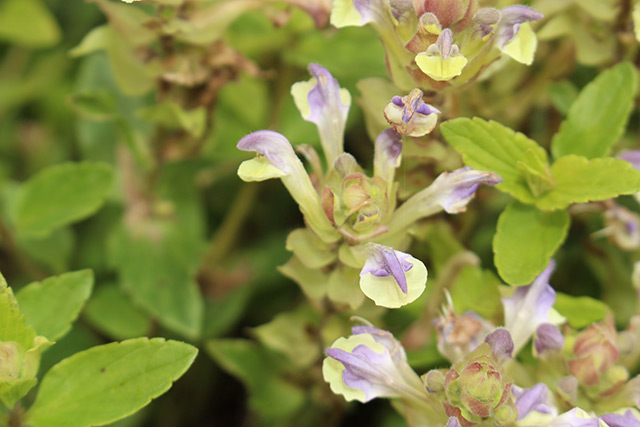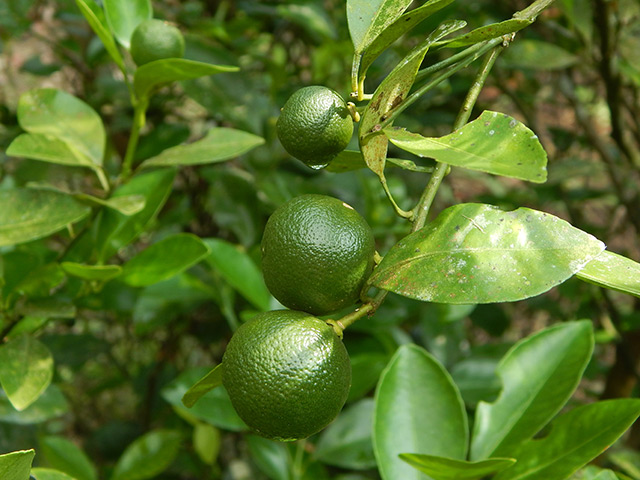Protect your lungs from ischemia-related injuries with Chinese skullcap
04/11/2019 / By Ralph Flores

Researchers from the National Yang-Ming University School of Medicine in Taiwan identified a compound from the Chinese skullcap (Scutellaria baicalensis) that can protect the lungs from damage following an ischemic event. In their study, which was released in The American Journal of Chinese Medicine, the team found that baicalein, a compound derived from Chinese skullcap, can regulate the production of the pro-inflammatory protein tumor necrosis factor-alpha (TNF-a) and pro- and anti-apoptotic elements.
In the study, the researchers tested the efficacy of baicalein against lung injury caused by myocardial ischemia and reperfusion (I/R). Myocardial ischemia – also referred to as cardiac ischemia – is a condition that occurs when blood flow to the heart is reduced, causing it to pump less efficiently. Reperfusion, on the other hand, is the restoration of blood supply to a vessel previously affected by ischemia. This procedure, in essence, is beneficial for blood vessels that have suffered oxygen deprivation because of ischemia, but it also carries the risk of damaging them further, especially if the tissues affected have become necrotic. This condition, called reperfusion injury, is mainly caused by free radicals damaging the blood vessels that have been affected by an ischemic event.
An earlier study in Circulation also identified the link between myocardial ischemia and lung damage. The former causes left ventricular dysfunction, which causes an increase in diastolic and capillary pressure. This negatively affects lung performance, causing symptoms such as tightness or difficulty breathing. In the study, the researchers noted that this leads to tissue damage in the lungs, as well as increased levels of pro-inflammation factors.
To address this, the team used a murine model to determine whether baicalein was able to attenuate damage following myocardial ischemia and perfusion. To mimic an ischemic event, the researchers blocked the left anterior descending artery of the mice for 40 minutes. This caused significant damage in their tissues, increased the wet-to-dry weight ration of the lungs, and elevated levels of TNF-a, interleukin-1-beta (IL1B), and interleukin-6 (IL-6) – all of which are associated with inflammation. As this was performed on mice that have been pre-treated with baicalein, the researchers found that it reduced ischemia-induced tissue damage and inhibited the production TNF-a, IL1B, and IL-6.
“In conclusion, treatment with baicalein attenuates the lung injury induced by myocardial I/R,” the researchers wrote in their report. “The mechanisms might be related to the limiting of apoptosis, possibly via the inhibition of both the extrinsic and intrinsic pathways of apoptosis, including the inhibition of TNF-a production and modulation of pro- and anti-apoptotic signaling elements.” (Related: TCM found to be effective at treating perimenopausal syndrome, improving symptoms over standard hormone replacement therapy.)
Other benefits of Chinese skullcap
The Chinese skullcap is widely used in traditional medicine; it’s prescribed for conditions such as inflammation, insomnia, hepatitis, and even atherosclerosis. Earlier studies on the plant’s other health benefits have been promising.
In a study published in the journal Neuroscience Letters, researchers indicated that baicalein and oroxylin A found in the roots of skullcap can protect against memory loss caused by amyloid beta, a protein linked to Alzheimer’s disease.
Chinese skullcap was also found to inhibit the development of benign prostatic hyperplasia (BPH). According to the authors of the study in the Journal of Ethnopharmacology, the plant relieved inflammation and down-regulated abnormal androgen levels.
Learn about the other benefits of Chinese skullcap at Herbs.news.
Sources include:
Tagged Under: alternative medicine, baicalein, chinese skullcap, disease treatments, herbal medicine, Herbs, lung damage, natural cures, natural medicine, prevention, remedies, respiratory health, TCM, traditional Chinese medicine


















